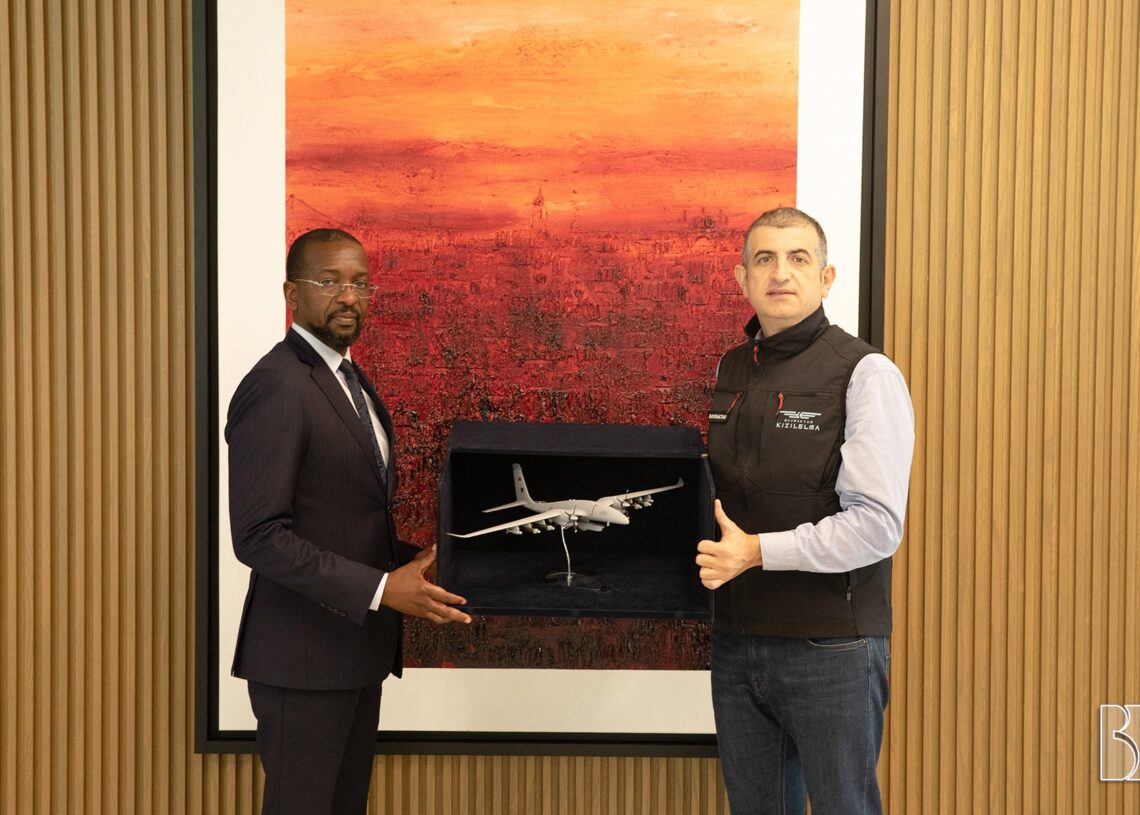Turkey is ramping up its efforts to gain a larger share of the African arms market, recently solidifying cooperation agreements with Mozambique in the military and defence industry sectors.
Cristóvão Artur Chume, the Mozambican Minister of Defense, embarked on an official visit to Turkey from September 4 to 9. During his stay, he engaged in discussions with his Turkish counterpart and conducted site visits to prominent Turkish defence contractors.
One of the key highlights of the visit was the meeting between Chume and Turkish Defense Minister Yaşar Güler, culminating in the signing of a military framework agreement between Mozambique and Turkey. Such framework agreements typically outline collaboration in the military sector, encompassing joint exercises, non-combat operations, and cooperation in the defence industry. These agreements also include provisions for sharing military intelligence, logistical support, and resource exchange.
Read also: Musk halts Ukrainian-Russia attacks, prevents Starlink usage
Strengthening Defense Industry Collaboration
Following the meeting with Chume, a delegation from Mozambique visited the Presidency of the Defense Industry (SSB). During this visit, SSB President Haluk Görgün and Chume signed a defence industry cooperation agreement, establishing the fundamental principles of collaborative defence industry activities between the two nations.
Turkey places great importance on signing such agreements before arms sales to ensure the protection of confidential information, guarantee copyright, establish a legal framework, justify official visits by authorised personnel, and cover technical service costs incurred by the recipient country.
Exploring Turkish Defence Capabilities
The Mozambican delegation also visited Baykar, a prominent drone manufacturer led by Selçuk Bayraktar, who is the son-in-law of Turkish President Recep Tayyip Erdogan. Baykar has secured significant contracts not only with the Turkish government but also with foreign nations, largely due to strong support from Erdogan, who advocates for the sale of drones to the Turkish Armed Forces and other countries. Baykar’s success in both domestic and international markets has been on the rise.
The Potential for Drones in Mozambique
There were unconfirmed allegations in 2021 that Baykar supplied 12 drones to Rwanda to support efforts against groups affiliated with the Islamic State in Iraq and Syria (ISIS) in Mozambique. Although not officially confirmed, the increase in trade volume with Rwanda lends credence to these claims. Mozambican media reported a need for drones in combating insurgent groups in forested areas of the country.
Impressions of the Turkish Defense Industry
According to the state-run Anadolu news agency, Chume expressed his admiration for the advanced capabilities of the Turkish defence industry. He also conveyed Mozambique’s desire to establish Turkey as a strategic partner.
African nations are increasingly drawn to Turkish weapons, particularly drones, due to the simplified sales procedures and approval processes offered. Unlike Western partners, Turkey does not impose political or human rights conditions on arms sales.
Turkey’s Expanding Defense Sector
The Turkish defence and aerospace sector recorded $4.3 billion in exports in 2022, a significant increase of approximately 36.9 percent compared to the previous year’s record of $3.2 billion. Baykar remained the top exporter in the sector, reporting $1.18 billion in exports in 2022. Other leading exporters included TAI, Kale Pratt & Whitney, Turkish Technic, and BMC.
Key buyers of Turkish defence products include Qatar, the United Arab Emirates, the Philippines, Poland, Rwanda, India, Burkina Faso, and Azerbaijan. Notable export categories encompass unmanned aerial vehicles (UAVs), ammunition and missile systems, land vehicles, turbojet/turbo propellers, aircraft components, hunting rifles, firearms, weapons turrets, and military helicopters.
Turkey’s Ambitious Pursuit of the African Arms Market
As Turkey continues to strengthen its presence in the African arms market, the nation’s proactive approach and emphasis on collaboration are positioning it as a significant player in the global defence industry. Mozambique’s engagement is just one example of Turkey’s expanding influence across the African continent.




